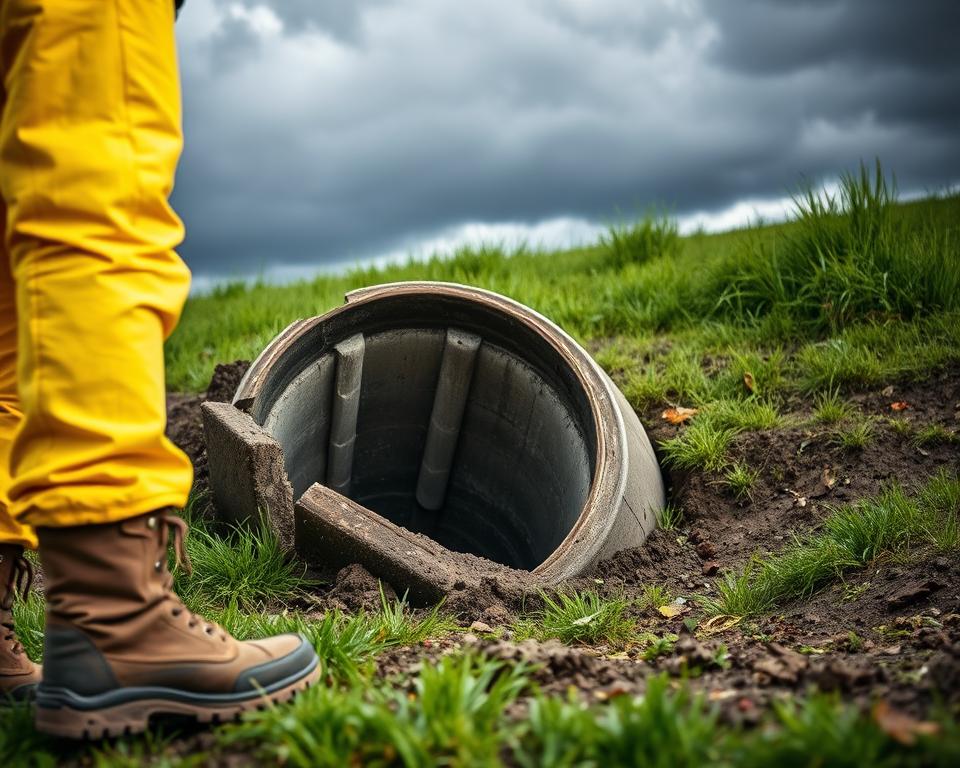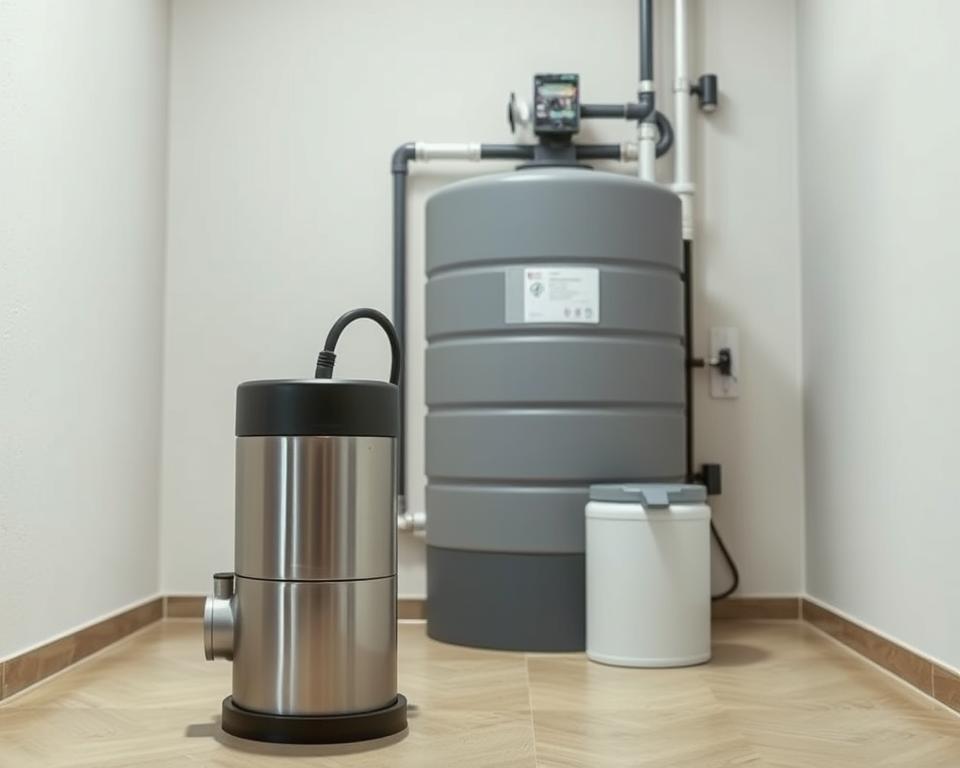Grease Interceptor Cleaning: Keep Your Kitchen Operating Efficient
Ever considered the function of a compact device in averting business kitchen plumbing catastrophes? Grease trap pumping goes beyond mere upkeep—it’s essential for efficient restaurant culinary waste management. These interceptors, vital for capturing fats, oils, and grease (FOG) produced during meal preparation, prevent clogs. Without regular cleaning, they can clog, leading to costly fixes and service interruptions. Let’s delve into the significance of grease interceptor cleaning and its role in ensuring a smooth kitchen operation, all while adhering to environmental standards.
Understanding Oil Traps and Their Importance
Oil interceptors are vital for the smooth operation of business culinary spaces and food processing establishments. They collect grease, fats, and hard refuse before they enter the drainage system. This role is crucial for maintaining kitchen hygiene. It’s essential to grasp how these traps function to make certain they work effectively and support a clean work environment.
What are Oil Traps?
A grease trap, also called a grease trap cleaning business, is a device intended to catch fats, oils, and grease (FOG) from effluent. Placed in the pipework of kitchens or meal serving establishments, it prevents these substances from entering the drainage system. This prevents backups or clogs in conduits, avoiding costly repairs and possible hygiene issues.
How Do Oil Traps Work?
The functioning of grease traps is based on gravity separation. Effluent enters the interceptor, where heavier particles settle at the base. Meanwhile, lighter grease and oil rise to the surface, creating a layer of FOG. This setup allows clearer liquid to leave the trap and flow into the sewer system.
Frequent inspection of grease traps is key for their best performance. Maintenance involves taking out accumulated FOG and solids to stop spillage and system failure. Proper fats, oils, and grease removal through timely upkeep makes sure kitchens function seamlessly and maintains hygiene.
Common Issues with Grease Traps
Oil interceptors are crucial for maintaining kitchens clean and operating well, especially in the meal serving sector. Neglecting them can lead to various issues that affect functions. Understanding these issues helps in concentrating on drainage system upkeep for improved functionality.
Blockages and Blockages
Clogs and obstructions are significant concerns with grease traps. They often originate from fats, oils, and greases (FOG) accumulation. This collection can clog liquid movement, causing drainage backups. Thus, regular pipe clearing is crucial to stop these clogs. Regular checks help identify obstructions in advance, stopping larger issues.
Foul Odors and Insect Infestations
Neglecting grease interceptors also causes foul smells and pest infestations. Collected organic material causes unpleasant smells, rendering the kitchen undesirable to work in. These odors draw pests, increasing hygiene risks. A regular cleaning schedule for grease traps is crucial to handling meal serving sector waste effectively. It guarantees a clean, pest-free environment, fostering a healthier culinary atmosphere.
Oil Interceptor Cleaning: Essential Upkeep for Your Kitchen
In the realm of dining establishments and commercial culinary spaces, grease trap pumping is vital for upkeep. Making sure your grease interceptor remains in top condition is crucial for both functional effectiveness and ecological compliance. It’s vital to know the ideal cleaning frequency and to identify signs that indicate the need for service. This awareness can significantly lower expenses and conserve time over time.
Frequency and Scheduling of Pumping
Choosing the right cleaning frequency for grease interceptors hinges on various factors. The size of the interceptor and the amount of fats, oils, and grease (FOG) your kitchen generates are key considerations. Generally, it’s advised to clean grease traps every 1 to 3 months. Regular inspections help ensuring smooth functioning and compliance to local legal standards.
Indicators That Your Grease Trap Needs Cleaning
Staying alert for indicators that your grease interceptor needs pumping can prevent more severe problems. Watch for these signals:
- Slow drains: If sinks drain slower than normal, it could indicate the grease trap is full.
- Regular plumbing clogs: Frequent backups suggest a grease trap struggling to handle refuse volume.
- Bad smells: A bad odor near the trap indicates it’s time for cleaning.
Addressing these indicators quickly improves functioning and guarantees environmental compliance for dining establishments. Consistent upkeep prevents costly fixes and fosters a sanitary culinary environment.
Advantages of Frequent Oil Interceptor Upkeep
Frequent upkeep of grease interceptors is vital for your culinary space’s efficiency and operation. A consistent schedule for inspections and clearing avoids interruptions and ensures a safe, hygienic culinary area. This preventative method is key to a well-run kitchen.
Avoiding Costly Repairs
Proactive upkeep helps kitchen managers spot and fix problems in advance. Regular inspections identify blockages and blockages, avoiding expensive fixes that could halt functioning. Each maintenance session makes sure grease interceptors function efficiently, reducing the risk of pipework breakdowns and urgent issues.
Enhancing Kitchen Sanitation
Regular upkeep of grease traps boosts kitchen sanitation. It reduces grease and food fragments, lowering the danger of bad odors and bacteria. A clean grease trap creates a more secure cooking space and complies with meal hygiene standards, crucial for patron satisfaction. Effective upkeep has a major beneficial impact on kitchen operations.
| Benefit | Explanation | Effect on Kitchen Functions |
|---|---|---|
| Cost Savings | Lowers the risk of unplanned plumbing issues that cause expensive repair costs. | Guarantees continuity of business without unexpected interruptions. |
| Enhanced Hygiene | Reduces foul smells and bacteria associated with grease buildup. | Provides a clean and safe space for food preparation. |
| Compliance | Meets regulatory standards by ensuring cleanliness. | Avoids fines and regulatory problems due to substandard kitchen hygiene methods. |
Choosing the Best Grease Interceptor Cleaning Service
Choosing a reliable grease trap maintenance provider is essential for ensuring top functioning in dining establishments and business culinary spaces. It’s essential to select a provider with broad experience in grease trap upkeep. Companies like Grease Interceptor Cleaning Service ensure compliance with regional standards and provide comprehensive maintenance to maintain your grease interceptors efficient.
Experience and Expertise in Services
A reputable service boasts a proven history in handling grease traps efficiently. Their experience in business plumbing offerings enables them to identify possible issues in advance. With knowledgeable technicians, companies can anticipate detailed maintenance and upkeep routines tailored to each culinary space’s individual requirements. This approach prolongs the life of the sewage system.
Environmental Responsibility in Waste Management
Provider excellence isn’t the sole factor; environmental compliance is just as vital. The right grease trap cleaning company prioritizes responsible refuse removal methods. Efficiently handling the gathering and removal of grease and particles demonstrates a commitment to sustainability. By selecting a provider that matches with these principles, companies can guarantee their grease trap maintenance is both efficient and environmentally responsible.



